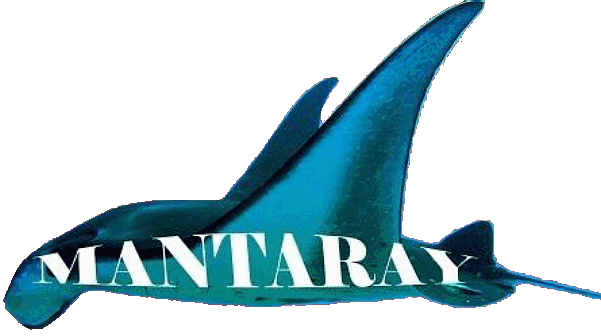|
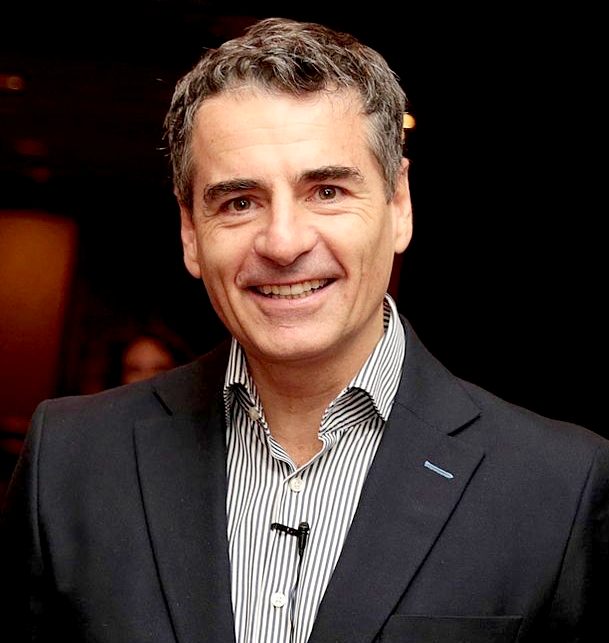
Andrés Velasco Brañes
was born on August the 30th 1960. He is an economist and professor. He served as the Finance Minister of Chile from March 2006 to March 2010, the whole of the first presidential period of Michelle
Bachelet.
While serving as the finance minister, the price of copper reached all-time highs in 2006, boosting government
revenues. As you can imagine, Velasco was put under intense political pressure from government workers and students to spend the windfall. Instead he opted to hold it in reserves equivalent to 30% of the country's GDP. After the copper price plummeted following the 2007-2010 global financial crisis,
that threatened the Chilean economy, Velasco then used these reserves on stimulus spending for subsidies and tax cuts
policies now being praised for their positive social impact. As a result of
his shrewd tactics, his popularity reversed from one of the most reviled politicians to one of the most admired.
HISTORY
The son of former radical politician Eugenio Velasco and lawyer Marta Brañes, Velasco was born in Santiago, where he lived until the age of 16. Following the exile of his father in 1977, the whole family moved to the US, first to
Los Angeles and then to Boston. He finished his secondary school studies at Groton School. He holds a PhD in Economics from Columbia University. He took post-doctorate studies at Harvard University and at Massachusetts Institute of Technology (MIT). Earlier, he obtained his Bachelor’s Degree in Economics and Philosophy at Yale University, and a Master in International Relations at the same university. He is Sumitomo-FASID professor of Development and International Finance at Harvard University's John F. Kennedy School of Government.
Velasco has received several distinctions, such as the Award for Excellence in Research granted by the Inter-American Development Bank (IDB), in recognition for his contributions to economic research, the design of policies, and the creation of research institutions in Latin America and the Caribbean (2006), "Latin America Finance Minister of the Year" by Emerging Markets magazine, published by Euromoney Institutional Investor plc during the annual meetings of the World Bank and the International Monetary Fund, based on the preferences of the most influential economists, investors and experts in the region (2008), and an award from "América Economía" magazine, which also considered him as "Finance Minister of the Year". In 2009, "Latin Trade" magazine gave him the
prize for the "Most Innovative Leader of the Year".
Velasco has been director of the New York University Center for Latin-American and Caribbean Studies and assistant professor at Columbia University Department of Economics and Public Affairs. He was Chile’s Ministry of Finance Chief of Staff between 1990 and 1992, International Finance coordinator between 1992 and 1994, and North American Free Trade Agreement (NAFTA) negotiator in 1995.
Between 2001 and February 2006 Velasco was an associate researcher at the Corporation for Latin-American Research (Cieplán) and president of the board of Corporación Expansiva. He has also been a consultant for the
International Monetary
Fund, the Inter-American Development Bank, the World
Bank, and for the governments of the Dominican Republic, Mexico and El Salvador.
Velasco is married to journalist Consuelo Saavedra and is the father of Rosa, Ema and Gaspar.
THE
COMMISSIONERS
|

|
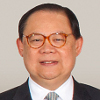
|
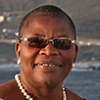
|
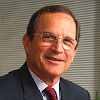
|
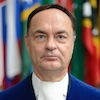
|
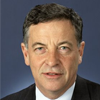
|

|
|
Carol
Browner |
Victor
Chu |
Obiageli Ezekwesili |
Luiz
Furlan |
Vladimir
Golitsyn |
Robert
Hill |
Yoriko
Kawaguchi |
|
. |
. |
. |
. |
. |
. |
. |
|

|
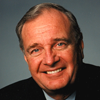
|
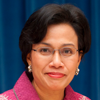
|

|

|
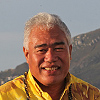
|
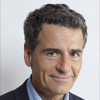
|
|
Pascal
Lamy |
Paul
Martin |
Sri
Mulyani Indrawati |
Cristina
Narbona |
Ratan
Tata |
Foua
Toloa |
Andrés
Velasco |
GOC
OBJECTIVES The objective of the Global Ocean Commission is to address
the issues herein by formulating ‘politically and technically feasible
short, medium, and long-term recommendations. The work of the Commission thus focuses on four key tasks:
1. To examine key threats, challenges, and changes to the ocean in the 21st century, and identify priority issues. The Commission will utilise both scientific and economic evidence, drawing on existing reports from world experts, as well as commencing original research in partnership with other organisations.
2. To review the effectiveness of the existing legal framework for the high seas in meeting these challenges. According to the Commission, this means a special focus on the effectiveness of regional fisheries management organisations, particularly with respect to their accountability, transparency, and performance. It also means reviewing the governance gap on biodiversity conservation and analysing options for combatting IUU
fishing. The Commission will also assess the suitability of the existing legal regime for regulating emerging uses of the global ocean.
3. To engage with interested parties around the world, as well as the general public. The Commission will connect with fishers, military and merchant navies, recreational sailors, seafood companies, conservation groups and the emergent seabed mining business. The Commission also aims to raise understanding among policymakers, economists and other groups, including the general public, of the implications should high seas issues not be reformed.
4. To make recommendations regarding ‘cost-effective, pragmatic and politically feasible reforms of high seas governance, management and enforcement.’ While the threat analysis will take account of external issues such as climate change, recommendations will focus on reforms that can be achieved by evolving high seas governance. Some may concern the fundamental legal framework under which the global ocean is governed, whereas others may focus on improving the effectiveness of existing mechanisms.

The Global Ocean Commission
Somerville College
Woodstock Road
Oxford, OX2 6HD
Tel: UK+44 (0) 1865 280747
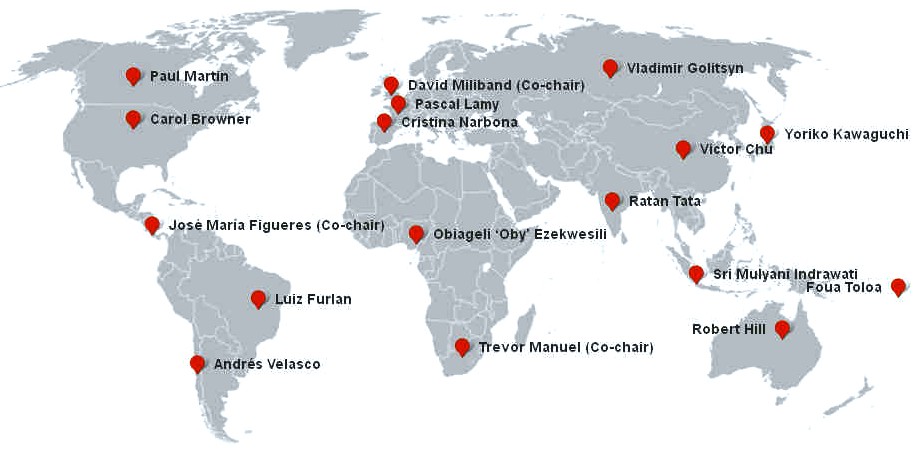
GLOBAL
OCEAN COMMISSIONERS
- A map of the world showing the location of the GOC's commissioners.
GLOBAL
OCEAN COMMISSIONERS - CO-CHAIRS
|
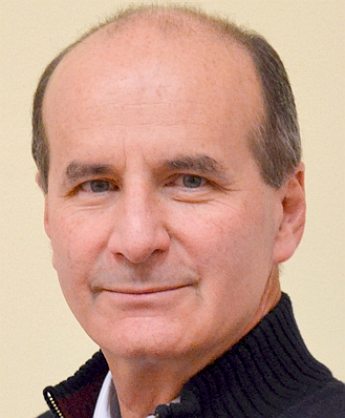
|
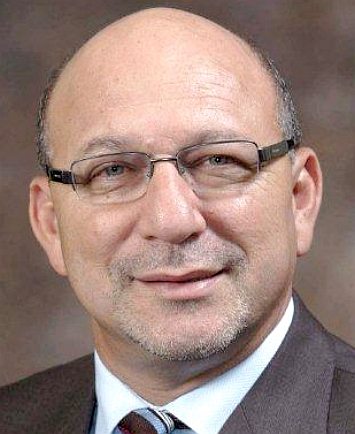
|
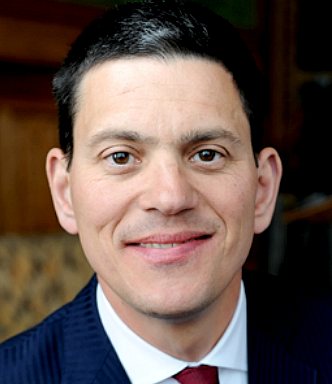
|
|
José María Figueres |
Trevor Manuel |
David
Miliband |
GOC's
SECRETARIAT
|
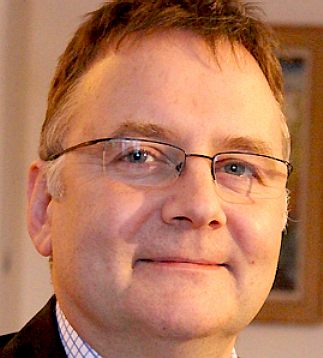
|
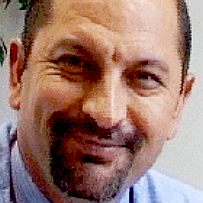
|
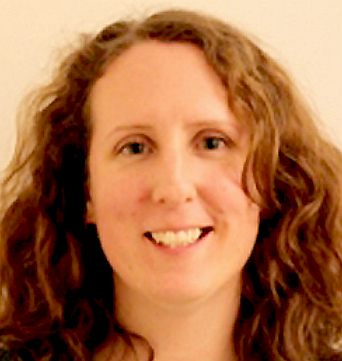
|
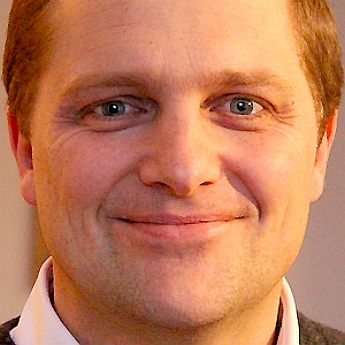
|
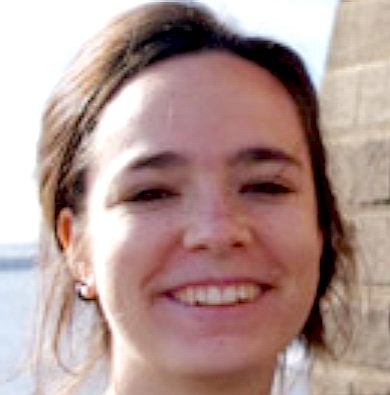
|
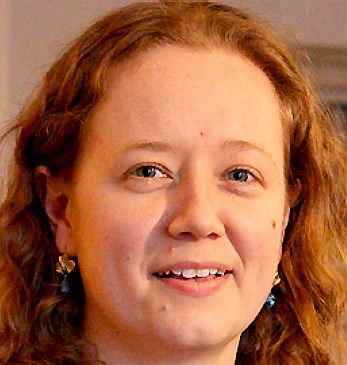
|
|
Simon
Reddy |
Rémi Parmentier |
Clare
Brennan |
Kristian Teleki |
Inés de Águeda |
Sarah Gardner |
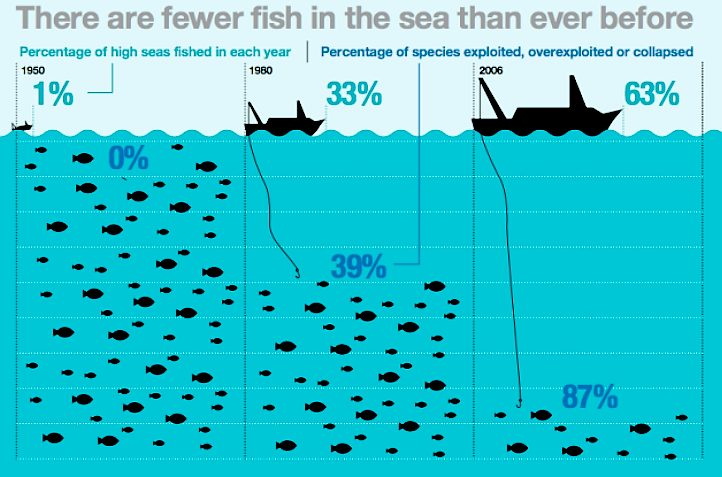
RICH COUNTRIES PAY ZOMBIES $5 BILLION A YEAR IN SUBSIDIES TO PLUNDER THE OCEANS
- If industrial fleets weren’t subsidized, they’d go out of business. Small-scale fisheries that don’t need enormous amounts of fuel to catch huge hauls of
fish - i.e. the ones using sustainable fishing practices - would then in theory thrive. Many of these fishermen are in poor countries whose governments can’t afford to compete in the industrial looting.
Worse, there’s a double-whammy zombie effect going on in the fishing context. Government subsidies to highly destructive industrial fleets don’t just deprive small-scale fishermen of finite taxpayer dollars and edge them out of the market with cheap prices; they also rob them of current and long-term fishing stocks. 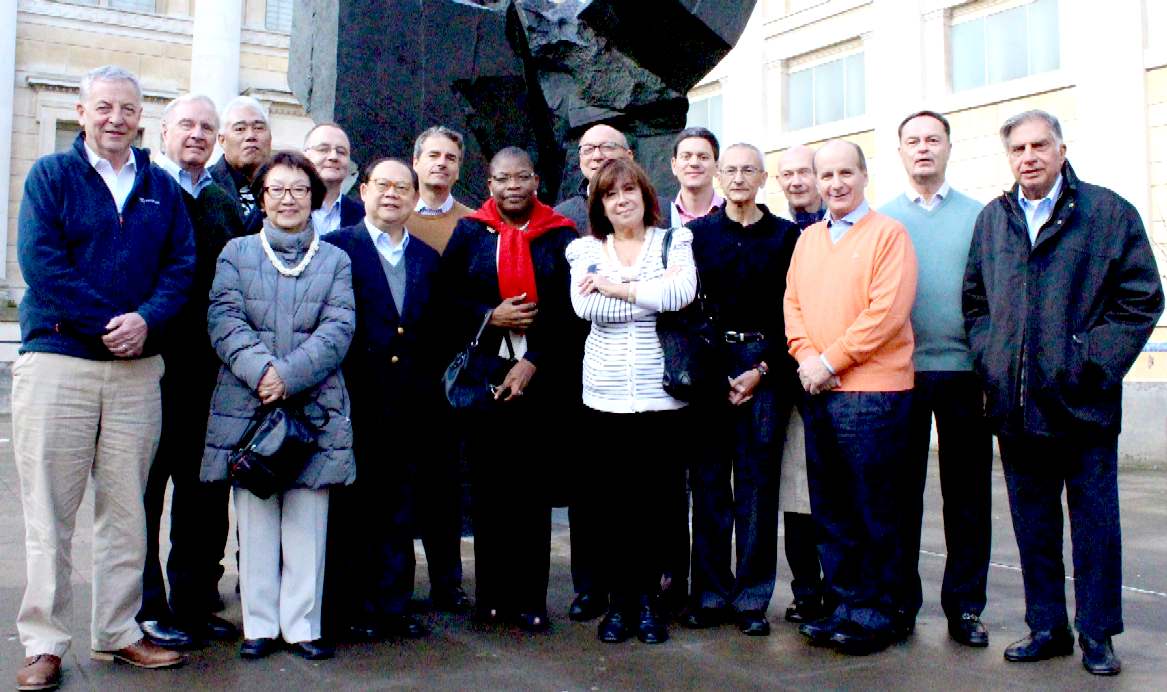
The Global Ocean Commission at its meeting in Oxford, 21st-23rd November 2013 (left to right) Robert Hill, Paul Martin, Foua
Toloa, Yoriko Kawaguchi, Simon Reddy (Executive Secretary),
Victor Chu, Andrés Velasco, Obiageli
Ezekwesili, Trevor Manuel (Co-chair), Cristina Narbona, David Miliband (Co-chair), John
Podesta, Pascal Lamy, José María Figueres (Co-chair), Vladimir
Golitsyn, Ratan Tata. 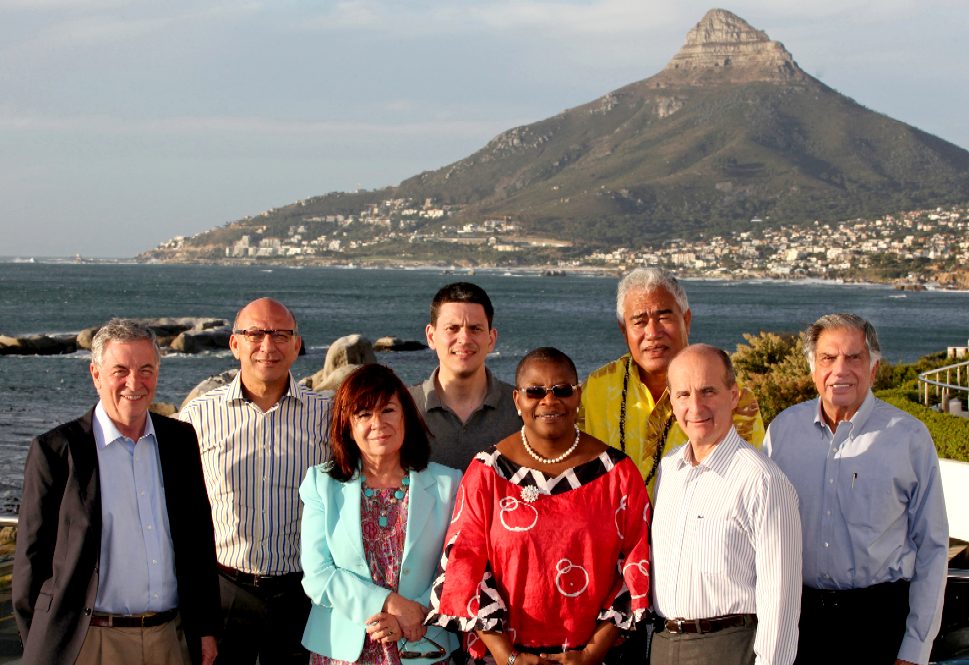
Members of the Global Ocean Commission at their inaugural meeting in Cape
Town, South
Africa. Left to right: Robert Hill, Trevor Manuel (Co-chair), Cristina
Narbona, David Miliband (Co-chair), Obiageli Ezekwesili, Foua Toloa, José María Figueres
(Co-chair), Sir Ratan Tata.
LINKS
& REFERENCE
Project
Syndicate Andres Velasco
Ineteconomics
Andres Velasco
Wikipedia
Andres Velasco
Telegraph
US-royal-tour-Prince-of-Wales-makes-plea-for-cleaner-oceans
Prince-of-Wales-speech-hrh-the-prince-of-wales-event-titled-plastic-the-marine-environment-scaling
Daily
Mail
Charles-horrified-toll-plastic-dumped-sea-Prince-Wales-plea-solve-issue-sake-future-generations
The
Guardian environment 2015 March 19
Prince-charles-calls-for-end-to-dumping-of-plastic-in-worlds-oceans
http://abcnews.go.com/US/wireStory/prince-charles-speaks-dangers-plastic-waste-oceans-29736519
Global
Ocean Commission
National
Geographic news 2014 June
Global-ocean-commission-report-high-seas-fishing-environment
Virgin
leadership and advocacy introducing global ocean commission
Wikipedia
European_Commissioner_for_Maritime_Affairs_and_Fisheries
Reuters
2013 US oceans new global group to clean up
National
Geographic 2014
global-ocean-commission-report-high-seas-fishing-environment
http://www.project-syndicate.org/columnist/andres-velasco
http://ineteconomics.org/people/andres-velasco
http://en.wikipedia.org/wiki/Andr%C3%A9s_Velasco
http://en.wikipedia.org/wiki/European_Commissioner_for_Maritime_Affairs_and_Fisheries
http://www.virgin.com/unite/leadership-and-advocacy/introducing-global-ocean-commission
http://www.scienceifl.com/ocean-plastic-pollution.htm
http://abcnews.go.com/US/wireStory/prince-charles-speaks-dangers-plastic-waste-oceans-29736519
http://www.globaloceancommission.org/
http://time.com/3750375/environment-prince-charles-oceans/
http://news.nationalgeographic.com/2015/03/150318-prince-charles-oceans-trash-plastic-britain/
http://en.wikipedia.org/wiki/Global_Ocean_Commission
http://www.itv.com/news/2015-03-18/prince-charles-makes-impassioned-plea-for-oceans-clean-up/
ACID
OCEANS - ARCTIC
- ATLANTIC - BALTIC
- BERING
- CARIBBEAN - CORAL - EAST
CHINA - ENGLISH CH
GULF
MEXICO
- GOC - INDIAN
- MEDITERRANEAN -
NORTH SEA - PACIFIC
- PERSIAN GULF - SEA
JAPAN - STH
CHINA
PLANKTON
- PLASTIC
- PLASTIC
OCEANS - UNCLOS
- UNEP
- WWF
|





























